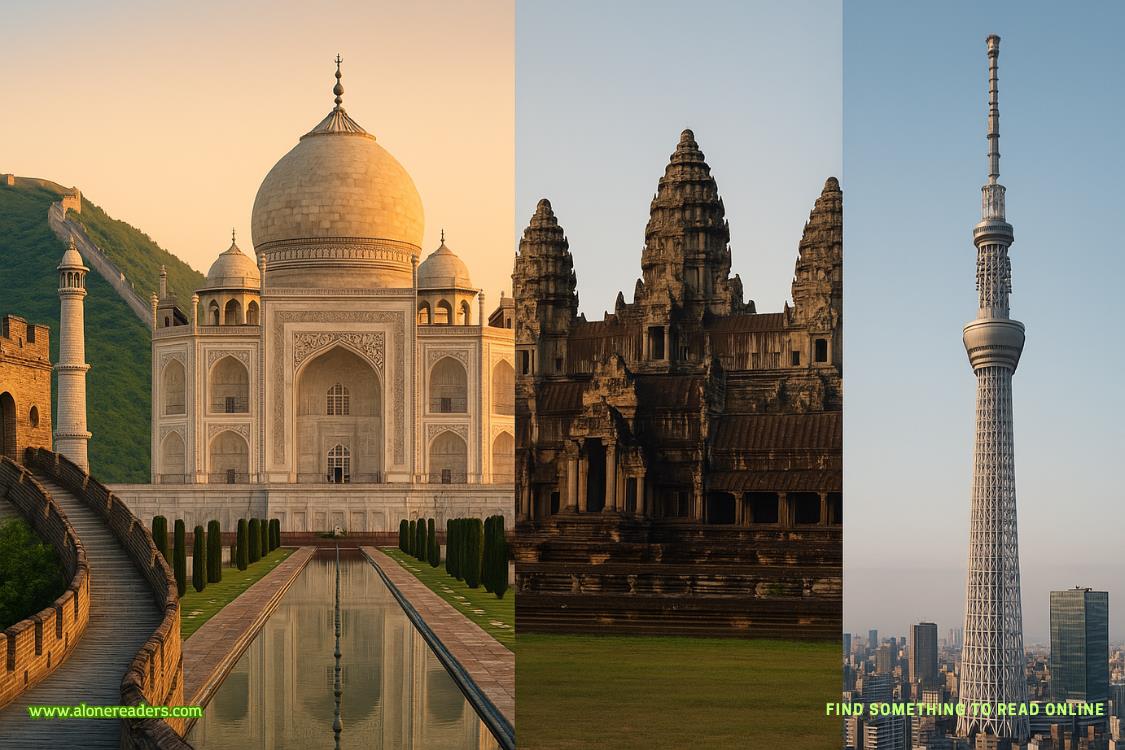Page 64 of A Resistance of Witches
“I’m going to sleep now.”
The man on the windowsill sneered.
“Say, ‘Goodbye.’ Say it like you mean it.”
“Goodbye.”He said it in the biggest, strongest voice he could manage. The man on the windowsill bared his teeth, the inside of his mouth rotted and stinking, but then he turned and climbed out the window, and did not return.
Henry’s mother sat on the edge of the bed until the man was gone, then stood without a word. She went to the window and glanced out, then turned her back to it.
“You sleep now, you hear?”
Henry nodded. He lay awake in his bed for a long time after she left, waiting for the shouting man to return, but he never did.
•••
Henry left Château de Laurierand ran like hell until nightfall, only stopping a handful of times to catch his breath and get his bearings. Once or twice, certain he’d been followed, he crouched in shadows,shivering in the cold until he was sure he was alone. TheGrimorium Bellumhung from his shoulder in a canvas pack, chattering gleefully.
At sundown he stumbled out of the woods and found himself looking down from a hilltop onto a small stone farmhouse—a squat, drab little spot against the spectacular pink and crimson of the late-autumn sunset. It was the Boucher farm. He knew Richard Boucher only by reputation, but he’d heard enough—that the man sold milk to his neighbors on the black market, that he sheltered liberation fighters—so-called maquisards—on his property. Henry staggered toward the house, sweating through his clothes in the bitter cold, and knocked on the door. He heard voices inside. The family was eating their dinner.
Richard Boucher opened the door. He was an enormous man, bigger even than Henry, with sleepy eyes and a heavy, downturned mouth. Boucher took one long look at Henry, this half-mad stranger panting in his doorway, then glanced toward the tree line.
“Were you followed?”
Henry shook his head, too winded to speak.
Boucher gave him another stony look.
“Come with me.”
He led the way across the field to a little gray barn. Henry was so exhausted he could barely keep up. He tripped over his own feet once and nearly toppled to the ground, but managed to right himself in time.
Boucher opened the barn door and directed Henry toward the hayloft, where he discovered several rough sleeping pallets, already made up with stacks of threadbare quilts.
So, it’s true, he thought. He turned to thank Boucher, but the man was already gone.
•••
Henry tried to rest,but his mind wouldn’t allow it.
Lydia was gone, maybe dead. He saw her face every time he closedhis eyes, lips blue, seizing on the floor of Château de Laurier as he cradled her in his arms. And now he’d abandoned Rebecca to the Gestapo, a fact that filled him with sickening shame. Yes, she had shoved a rifle in his face and ordered him to go, but still. He should have insisted. He should have stayed.
Pushed to the farthest corner of the hayloft, theGrimorium Bellumsat, buzzing like a hive. Carrying it had felt like clutching a bomb, one that would tear him to pieces come the next full moon, when the Nazis would conduct their tracking spell again, and then there would be nothing Henry could do. They would find him, kill him, and take the book. It was only a matter of time.
Henry hated the thing. It seemed to make demands in a language he couldn’t understand, like an itch he could never quite scratch. Lydia had been able to decipher the incessant chattering, like there was a private conversation happening that Henry couldn’t hear. And then it had poisoned her from the inside out.
He wished he could see her. Talk to her. To know that she was alive and safe, and also, selfishly, to know that he wasn’t alone. He remembered what Lydia had said to him that first morning after they’d met—that he had witch blood in his veins, and that was why the book spoke to him. She’d seen it on him, the thing Henry had been running from for fifteen years. She’d named it like it had been written on his face.
He wondered what his mother would say. He imagined she would laugh.
His mother, Fabienne, had grown up in Haiti before coming to New Orleans when she was just sixteen. She fell in love with Henry’s father—handsome, charming, doomed George Boudreaux, a grocer’s son from Tremé. George died of Spanish flu before Henry ever learned to walk, leaving Fabienne to raise their son alone, immersed in the world of Vodou, the spirits as ever present to Henry as air. If he closed his eyes, he could almost imagine he was there again: in his mother’s tiny shotgun house, crammed full of people all dressed in white, the drummingand dancing, his mother moving her body until it seemed as if her soul had departed and something else had come and taken her place. He’d found so much joy and wonder in his mother’s traditions, a sense of pride and belonging that made his ribs ache from holding in all of that love.
From his mother, Henry learned about the Lwa—the Vodou spirits who became as familiar to him as family. There was Agwé, who watched over sailors and helped them find their way. There was raunchy Baron Samedi and his wife, Maman Brigitte, who felt to Henry like a beloved aunt and uncle, the kind who would sneak you rum under the table and tell you dirty jokes. And there was Papa Legba, with his pipe and his cane, who loved dogs, spoke every language, and would grant you permission to commune with the Lwa, and with the dead, but only if it pleased him. Henry loved Papa Legba best of all and would leave him gifts at the crossroads near his house every day. He would close his eyes at night and imagine he was conversing with his departed ancestors, just like his mother. He imagined his mind as a great room full of doors, each one an invitation for someone or something to step through.
Until one day, they did.
First one at a time, and then all at once, the dead flowed through Henry’s open doors. At first, he didn’t mind. Mostly they just left him alone. Some were even friendly. But then they began to want things from him. Some of them made strange demands and would punish Henry if he didn’t comply. Some delivered confusing messages, advice that didn’t make sense until months or even years later:Stay away from the man in the white hat. Don’t drive with John. Stay in France. Trust the girl.
“How do they know things that haven’t happened yet?” Henry would ask his mother.
- Sold to the Silver Foxes by Laylah Snow
- My Brother's Best Friends by Natasha L. Black
- The Rancher's Addiction by Lila Fox
- The Biker's Hidden Obsession by Khloe Summers
- Mile High Coach by Mia Mara
- Off-Limits as Puck by Kate Olivia
- Love Off Course by K. Webster
- Desert Sky by Jax Hart
- Their Darkest Needs by Amaya Jax
- Love & Vendettas by Cassie Verano
- Iron Bride by Molly Briar
- The Omega's Bloodline: Part One by Sierra Cassidy
- Forever In Willow Creek by Jade West
- Where the Blacktop Ends by Sofia Jade
- The Crown of Nyx by Audrey Moore
- Deep Feelings & Shallow Graves by Gwendoline Rose







